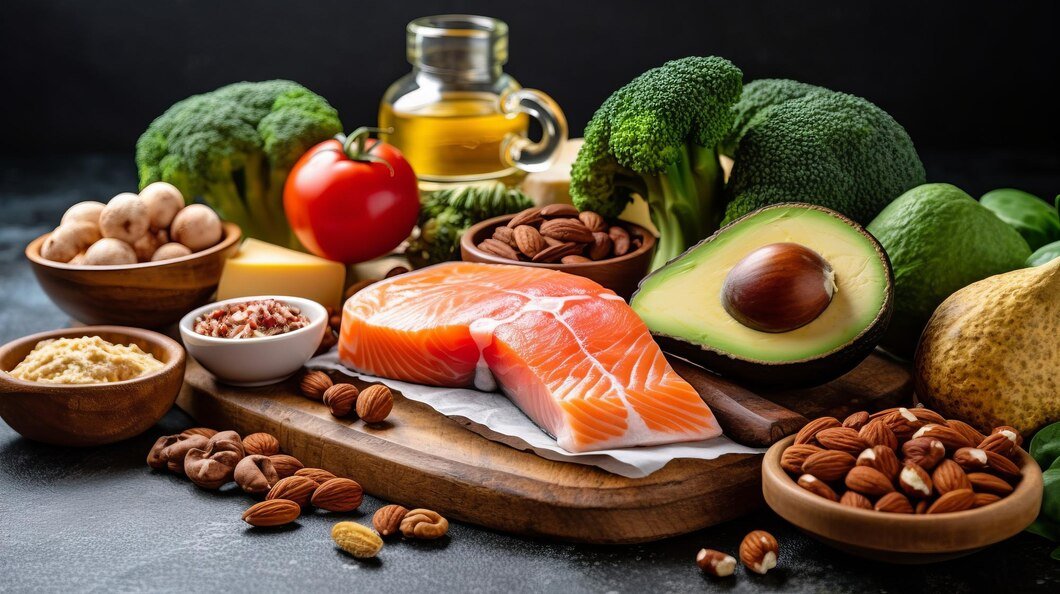
The keto diet, short for ketogenic diet, is a low-carb, high-fat diet that has gained significant popularity as a weight loss method in recent years. This dietary approach focuses on drastically reducing carbohydrate intake and replacing it with healthy fats, putting the body in a metabolic state called ketosis.
When following a keto diet, the body shifts its primary source of fuel from glucose (sugar) to ketones (produced from fat). This metabolic adaptation triggers the body to burn stored fat for energy, leading to weight loss. Additionally, by stabilizing blood sugar levels and reducing insulin spikes, the keto diet can help control cravings and promote fat loss.
In essence, the keto diet offers a structured way of eating that can be effective for weight loss by targeting fat stores for energy production. However, it is essential to understand the principles of the keto diet and its potential impact on the body before embarking on this dietary journey.
Mechanism of Keto Diet for Weight Loss
The ketogenic diet, commonly referred to as the keto diet, is a high-fat, moderate protein, low-carbohydrate eating plan that has gained popularity for its potential to promote weight loss. The primary mechanism behind weight loss on the keto diet is the induction of a state called ketosis. Here's how the keto diet works for weight loss:
- Reduction in Carb Intake: The keto diet cuts down on carbs, usually to less than 50 grams a day, sometimes even lower at 20-30 grams. By eating fewer carbs, the body can't use them for energy.
- Glycogen Storage Decrease: When carb intake is low, the body's glycogen stores get used up. Glycogen is stored sugar in the liver and muscles that the body uses for energy. As glycogen runs out, the body switches to using other things for fuel.
- Change to Ketosis: Without enough carbs, the body starts using fat as its main fuel. The liver turns fatty acids into ketones through a process called ketogenesis. Ketones like beta-hydroxybutyrate, acetoacetate, and acetone can supply energy to the brain and other tissues.
- More Fat Burning: In ketosis, the body burns a lot of fat for energy, both from food and stored body fat. By boosting fat burning, the keto diet can help lose weight, especially in people with too much body fat.
- Less Hunger: Some people on the keto diet feel less hungry. This could be because fat in the diet makes you feel full, ketones help control blood sugar, and hormones like ghrelin and leptin that manage hunger change.
- Possible Boost in Calorie Burning: Some studies show that the keto diet might increase how many calories you burn, even when resting. This might be because of how protein is used up and the faster metabolism in ketosis.
- Drop in Water Weight: At the start of the keto diet, you might lose weight quickly because of losing water weight. Water gets stored with glycogen in the body, so when glycogen is gone, water goes too, causing a water weight loss.
It's important to note that while the keto diet can be effective for weight loss in the short term, its long-term sustainability and potential health effects are still being studied.

Benefits of the Keto Diet for Weight Loss
The ketogenic diet, commonly known as the keto diet, has gained popularity for its potential to promote weight loss. Here are some of the key benefits of the keto diet for weight loss:
- Promotion of Fat Loss: The keto diet helps the body burn fat for energy instead of carbs. By eating less carbs and more fat, the keto diet makes the body use fat stores for energy, leading to weight loss.
- Appetite Suppression: Many people feel less hungry when they follow the keto diet. This might be because fat makes you feel full and ketones keep blood sugar levels steady. So, people eat fewer calories and lose weight.
- Enhanced Fat Burning: Studies show that the keto diet can help the body burn fat for energy better. By burning fat, the keto diet can speed up weight loss and improve body shape, especially in people with extra fat.
- Keeping Muscles Safe: Unlike some diets that make you lose muscle along with fat, the keto diet helps you keep your muscles while losing weight. This happens because ketosis saves protein and you keep muscle by doing resistance exercises and eating enough protein.
- Stable Blood Sugar: The keto diet can keep blood sugar levels steady by reducing carbs and stopping blood sugar and insulin spikes. Stable blood sugar helps prevent cravings, reduces hunger, and helps with weight loss.
- Less Water Weight: At the beginning of the keto diet, the body loses a lot of water weight as it uses up glycogen stores. This can make the scale show a big drop in weight in the first week or two, which can motivate you to keep going.
- Better Health: Research shows that the keto diet may improve different health markers, like blood fats, good cholesterol levels, and how well your body responds to insulin. These improvements lower the chances of getting diseases like type 2 diabetes and heart disease.
- More Energy: Many people feel more energetic and focused when they're on the keto diet. This could be because ketones give a steady energy supply, unlike carbs which can make energy levels go up and down.
It's important to note that while the keto diet can be effective for weight loss and offers various benefits, it may not be suitable for everyone.
Implementing a Keto Diet Plan for Weight Loss
Implementing a ketogenic diet plan for weight loss involves careful planning and adherence to specific macronutrient ratios. Here's a step-by-step guide to help you get started with a keto diet plan:
- Learn About the Keto Diet: Understand the basic rules of the keto diet. It involves eating fewer carbs, moderate protein, and more fats to enter ketosis.
- Set Your Macronutrient Goals: Figure out your daily fat, protein, and carb goals based on your needs. A typical ratio is 70-75% fat, 20-25% protein, and 5-10% carbs.
- Pick Keto-Friendly Foods: Choose whole, low-carb, high-fat foods like meats, poultry, fish, eggs, veggies, healthy fats, nuts, and seeds, choose your flours wisely such as with keto flour and full-fat dairy options such as yogurt, cheese, etc.
- Plan Your Meals: Create a weekly meal plan with keto recipes and snacks. Include a mix of proteins, fats, and low-carb veggies in each meal.
- Track Your Food Intake: Keep track of what you eat using an app or journal to ensure you're meeting your macro goals and progressing well.
- Stay Hydrated: Drink 8-10 glasses of water daily to stay hydrated.
- Balance Electrolytes: Maintain sodium, potassium, and magnesium levels to prevent imbalances due to increased water loss on the keto diet.
- Watch Out for Hidden Carbs: Be aware of hidden carbs in sauces, dressings, and snacks. Read labels and choose products with minimal sugars and carbs.
- Monitor Your Progress: Keep tabs on your weight, measurements, and how you feel on keto. Adjust your meals and macros as needed based on your results.
- Consult a Professional: Before starting keto, especially if it's new to you, talk to a healthcare professional or dietitian for tailored advice and safe implementation.
Bottom Line
The keto diet is a popular way to lose weight because it helps your body burn fat for energy instead of carbs. This makes you lose weight quickly. One good thing about the keto diet is that it helps you eat less without feeling hungry. It also stops your body from storing fat and helps break down the fat you already have for energy. To do the keto diet right, you need to eat lots of good fats, some protein, and very few carbs. Good meals to have are avocados, nuts, salmon, and leafy greens. Stay away from sugary foods and processed grains. In short, the keto diet is a great way to lose weight by making your body burn fat more efficiently. If you stick to a good keto diet plan and make healthy food choices, you can lose weight and feel better overall.
Reference
- https://regene.ai/articles/the-ketogenic-diet-a-dual-solution-for-weight-loss
- https://www.mdpi.com/1660-4601/19/16/10429
- https://my.clevelandclinic.org/health/articles/24003-ketosis
- https://nutrition.ucdavis.edu/outreach/nutr-health-info-sheets/pro-ketogenic-diet
- https://www.nature.com/articles/s41392-021-00831-w
- https://nutritionsource.hsph.harvard.edu/healthy-weight/diet-reviews/ketogenic-diet/
- https://www.healthline.com/nutrition/10-benefits-of-low-carb-ketogenic-diets
- https://www.healthline.com/nutrition/ketogenic-diet-101
- https://www.healthline.com/nutrition/ketogenic-diet-and-weight-loss
- https://www.ncbi.nlm.nih.gov/books/NBK499830/
- https://pmc.ncbi.nlm.nih.gov/articles/PMC8153354/



.png)


